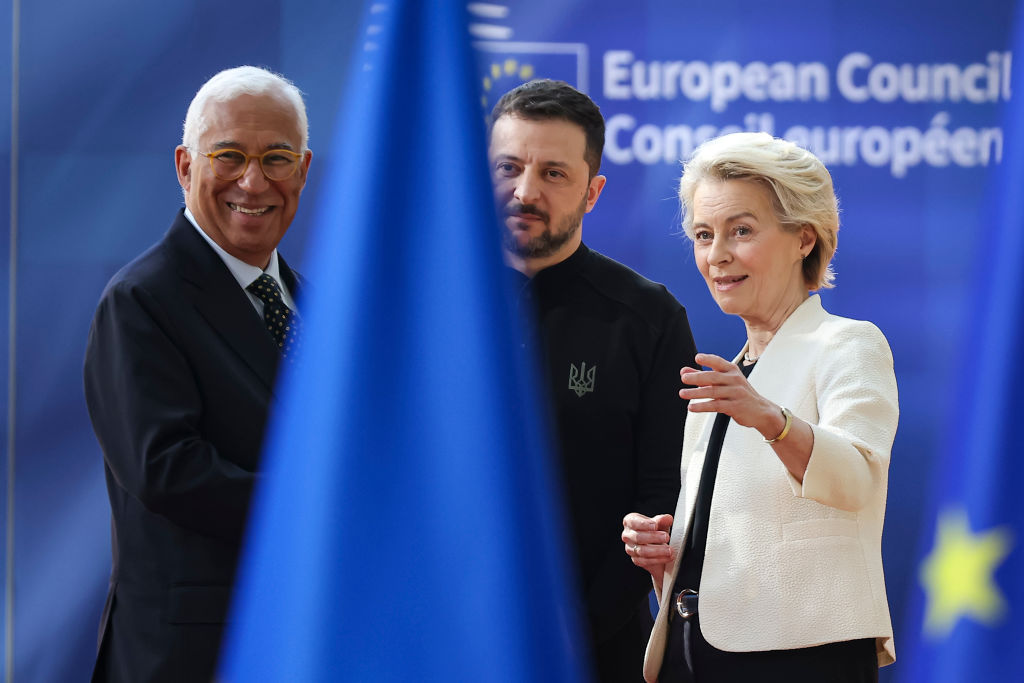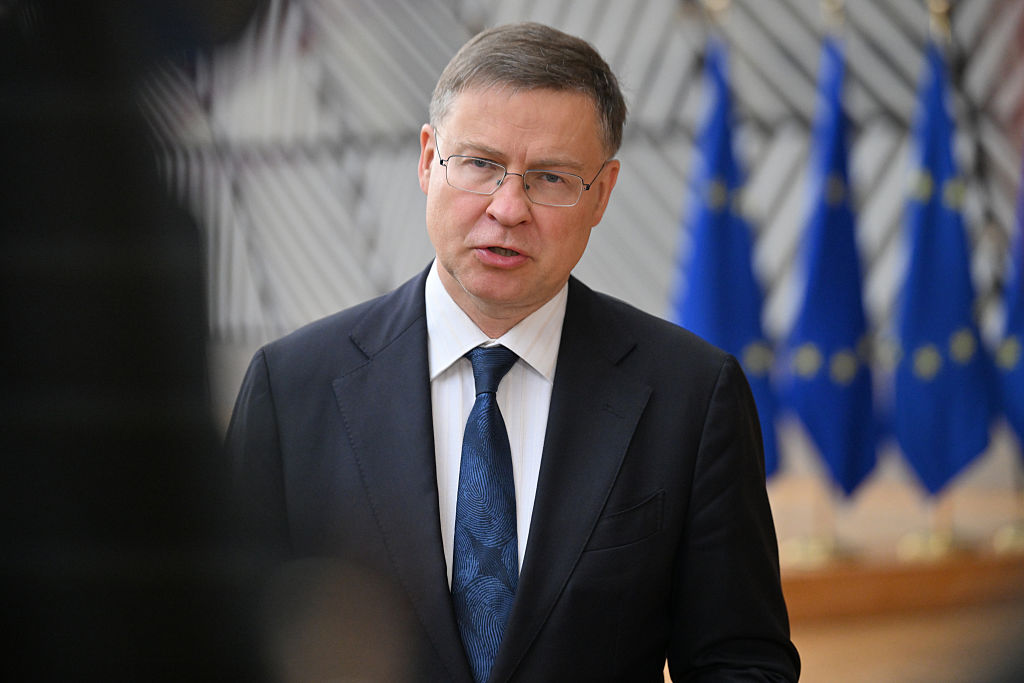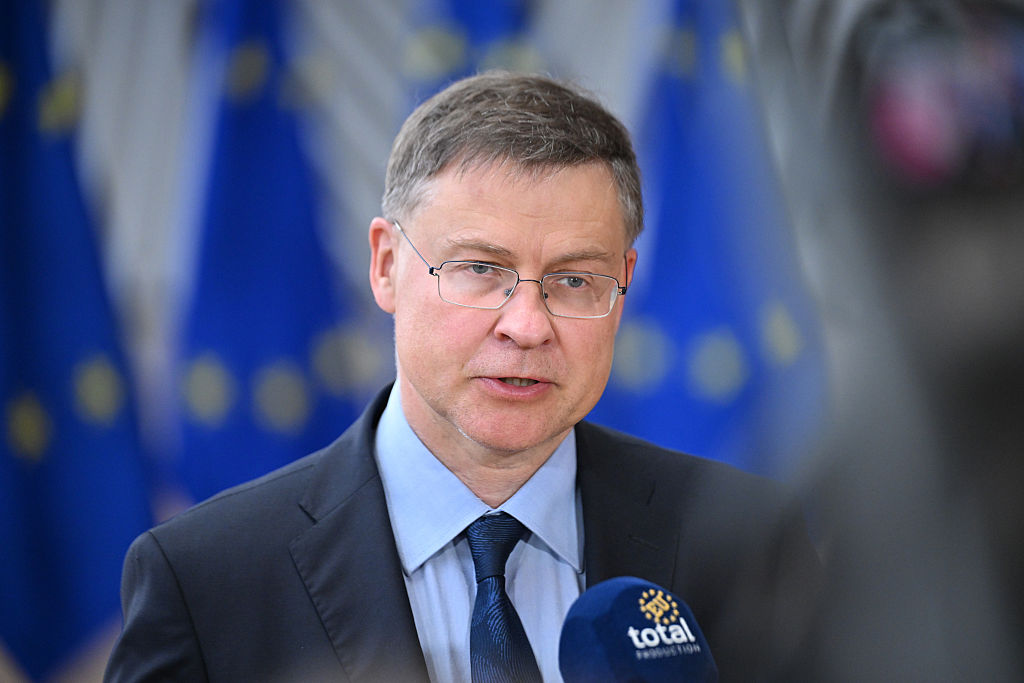EU Commission unveils deregulation 'quick fixes' for Europe's defence industry
An eagerly awaited EU "defence omnibus" to cut red tape for the arms industry largely delivers smaller tweaks – but promises more sweeping revisions next year.
The European Commission unveiled a simplification package aimed at cutting red tape for Europe’s defence industry on Tuesday, including plans for faster permitting timelines and rollbacks of some EU environmental regulations.
Bigger changes will have to wait, however. A more in-depth revision of EU defence procurement directives is now promised in 2026.
The goal of the long-awaited package – dubbed the defence omnibus – is easing regulatory burdens on defence manufacturers to expand armaments production, as well as driving greater investment and access to financing for the sector.
The package, unveiled on Tuesday, will mostly clarify existing EU legislation, such as by stating that companies in the defence industry should not be penalised under sustainable investment rules.
A Commission official described the measures as “quick fixes”, with additional changes to come as part of next year’s revision.
The Commission said it hopes to give guidance on how industry can use recent EU funding programmes, such as the €150 billion SAFE programme for joint EU military procurement projects.
Although EU countries have increased military spending and are more willing to raise their defence budgets in the long-term, the European defence industry has complained of difficulties with bureaucratic hurdles and the lack of long-term financial commitments to justify major investments in factories and production lines.
“Now we need enabling rules that give industry, armed forces and investors speed, predictability and scale,” Defence Commissioner Andrius Kubilius said during his presentation on Tuesday.
Fast lane for permitting
The omnibus calls for EU countries “to considerably fast-track permitting processes for the defence industry”, Commissioner for Economy Valdis Dombrovskis said on Tuesday.
Under one proposal put forward by the Commission on Tuesday, EU countries would have only 60 days to review permit applications for any company or product that would help defence readiness, which is defined as “the ability of Member States and Union defence industry to anticipate, prevent and respond to defence-related crises”.
Permits would be considered approved if an EU country fails to respond before the 60-day deadline.
The Commission is also reviewing public procurement rules, including an exemption for projects worth less than €900,000. That would reduce reporting requirements for smaller contracts. But larger contracts could also be exempt from the rules if EU countries invoke the national security clauses in EU treaties.
Business merger rules are also being reviewed, according to a Commission official who stressed that the EU executive is not seeking to encourage defence industry consolidation. For now, though, reviews of proposed mergers that are deemed beneficial to the defence readiness goals of the EU would begin from a more positive staring point.
Green deregulation
Rollbacks of environmental regulations are included in the proposal, after pleas from defence companies. The Commission is encouraging EU countries to make use of existing provisions in environmental laws that already allow some exemptions, such in the case of urgent overriding public interests.
The package, for example, proposes turning existing case-by-case exemptions to the EU’s REACH chemical regulations at the national level into much broader exemptions covering the whole industry. It would be up to EU countries to approve the use of chemical products for all defence purposes, or ban them altogether, giving countries more leeway in how they want to apply the green rules.
This at least partly answers a request from the influential industry lobby group ASD, which had called on the Commission to exempt armaments firms from several environmental rules as part of the omnibus package, according to a position paper seen by Euractiv.
The Dutch government also asked for exemptions from environmental rules for the defence industry and military operations, according to a position paper also seen by Euractiv.
The Commission’s package on Tuesday specified that the sustainable finance guidelines should apply to the defence sector in the same way as other industries, and should only exclude firms that produce “prohibited weapons” outlawed under international arms conventions which have been signed by most EU countries.
Some executives have complained that such environmental, social and governance (ESG) investment guidelines discourage investment in the armaments industry, and the industry has sought such changes to EU sustainable investment rules.
(bts)







